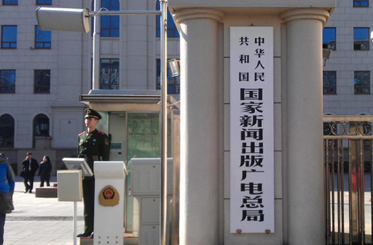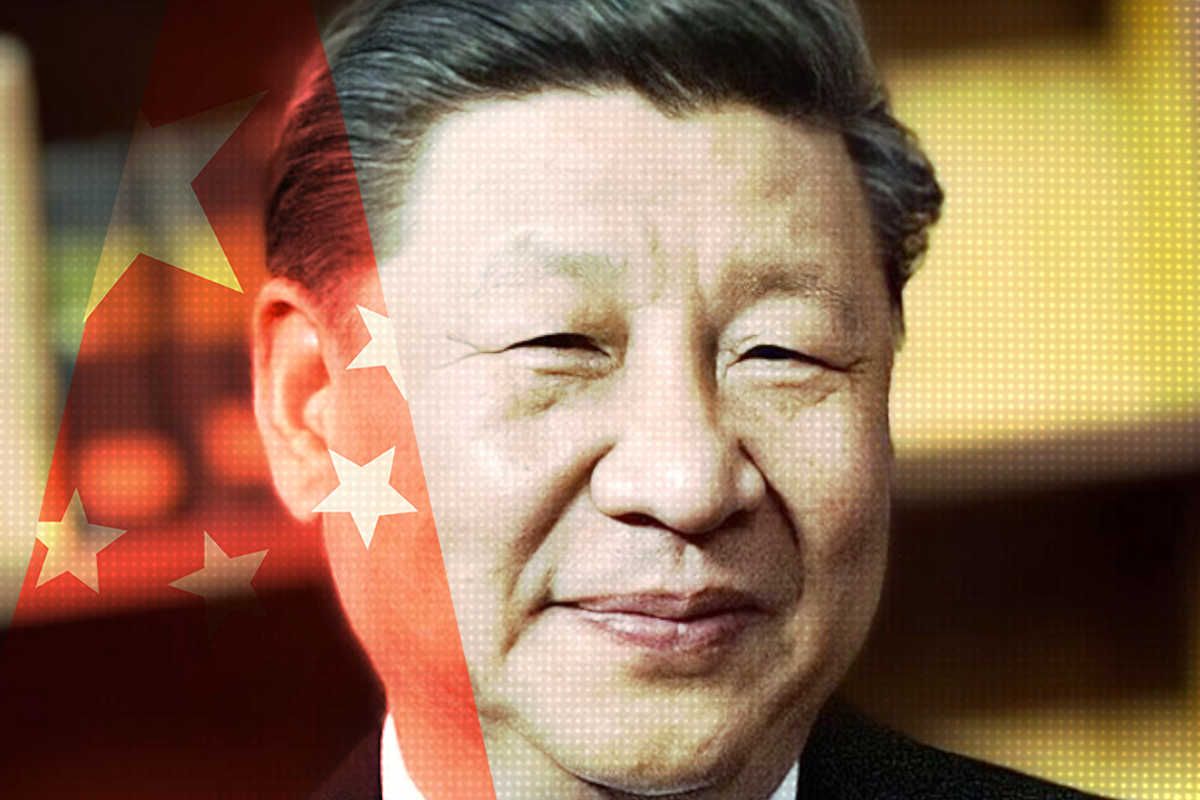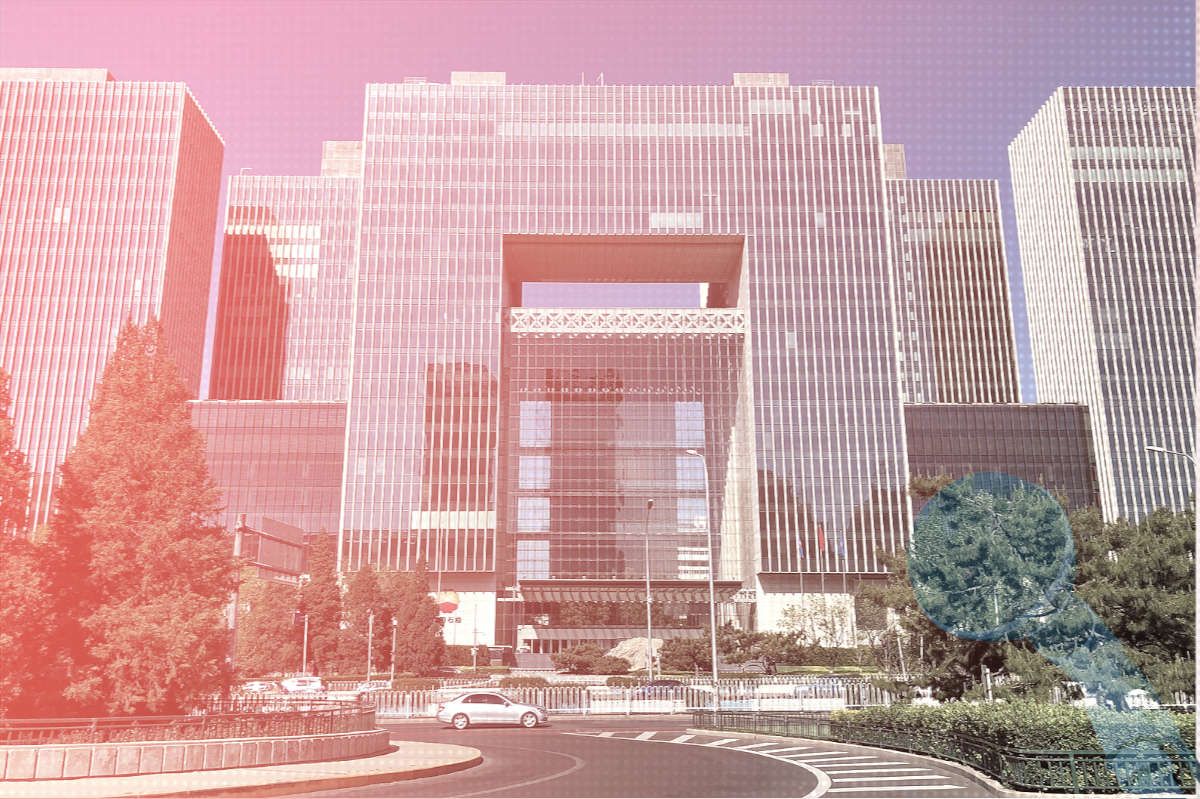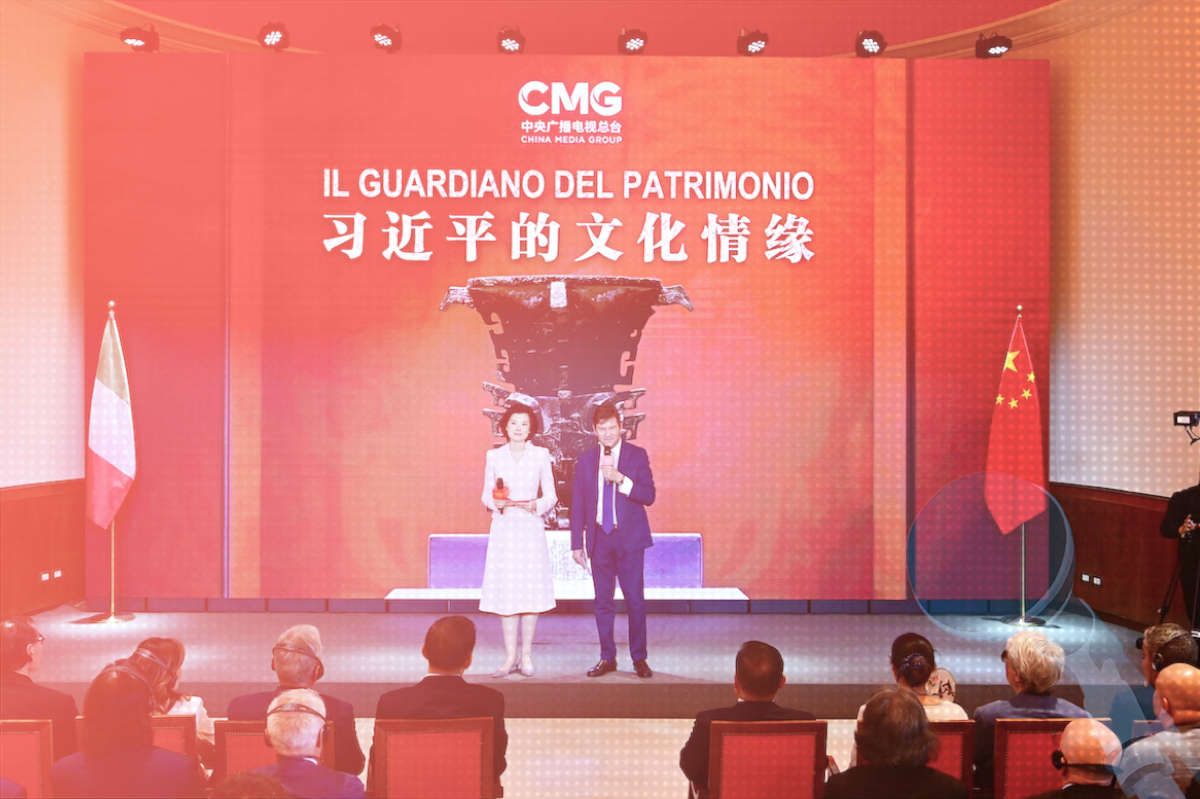There has been some degree of alarmism in the foreign press this week (1, 2, 3) over a (new?) set of restrictions issued by the Chinese government agency overseeing both print and broadcast media in the country. [READ Reuters report and China’s denial.]
It bears noting, however, that there is little of substance in the June 18 circular on “critical reporting” that we can say unequivocally represents a “tightening” or “worsening” of the situation for journalists in China. Which is not to say — I repeat, NOT to say — that continued attention to the issue of press freedom in China is not crucial (it is), or that there is any doubt we’ve seen a progressive worsening of the situation for professional journalists and internet users alike in China.

Yes, the media situation in China has worsened in recent months and years. In a sense, for China’s traditional media, what looked like a seasonal freeze back in 2004 has settled into an extended Ice Age. You could say that the Southern Weekly incident in January 2013 was the culmination of tensions within Chinese media over the progressive rollback of professional gains made from the late 1990s up to 2003. These included bans on cross-regional reporting, efforts by the Party to more actively “use” commercial media as vehicles for its own propaganda, and the installment of news examiners inside media conducting prior censorship.
But when Quartz reported the headline yesterday that, as a result of the June 18 circular, “Now China can censor journalists before they even start reporting a story,” it got the both the story and the background wrong.
Now, let’s sum up the main points of the June 18 circular from the now dizzyingly named “State Administration of Press, Publications, Radio, Film and Television” (国家新闻出版广电总局) — the combined agency created from the former GAPP and SARFT last year.
*** News media need to clean up their act, making sure their teams of reporters fall in line. This essentially reiterates what has always been true, that media “units,” administratively connected to the Party through so-called “sponsoring institutions” (主管单位), are responsible for maintaining “propaganda discipline” and curbing illegal conduct. [For more on how this process works, revisit our 2012 tutorial, which even shows you how to see where exactly media fit in China’s power structure].
*** News media must ensure that their “news bureaus” do not engage in “reporting activities across industries and across sectors.” This seems a strange one at first. But China’s publication licensing system has always imposed content restrictions on registered publications (which all publications must be). In other words, your publication focusing on financial services may have a valid kanhao (刊号), or publishing license, but that doesn’t mean you can go and do a feature story on a corrupt deputy mayor, or on foreign policy (etcetera). Licensing of publications — and of reporters — is an important aspect of media control, and the authorities are sending the message here that they are serious about enforcing existing restrictions.
**** News media must make sure their journalists are not striking out on their own and maintaining independent websites, online news channels, special editions or internal references. In China, where the fundamental media policy from Mao Zedong still holds, that “the politicians run the newspapers,” or zhengzhijia banbao (政治家办报), private and independent media are not accepted, full stop. However, with the rise of cheap, easy-to-use multimedia tools as well as social media, the lines have blurred. “Media” can now emerge in myriad potential ways. For a rather stunning example of this potential, just have a look at this very professionally done video on illegal detentions, produced by “Pu Zhiqiang Studio” (浦志强工作室) and posted to YouTube — Pu Zhiqiang being the prominent rights lawyer detained last month. Yes, Pu is a lawyer, not a journalist. But the point is that the CCP wants to check similar “lineballs” by professional journalists that exploit the chaos caused by rapid changes in media technology. “Internal references,” or neican (内参), are internal reports, classified to varying degrees, that include often more serious reporting of local, regional or national stories that are viewed as too sensitive to share with the public. Think of it as an internal, invisible pipeline of information available to Party leaders. These reports are often produced by news media, on the side as it were, some on a regular basis and some as required. My guess is that the mention of “internal references” in the June 18 circular concerns the commercial exploitation of so-called internal references. In other words, a news media, or bureau, could create a neican in which it publishes “negative news” in order to extort payouts from companies and/or officials. In this way, risk can be mitigated because the reports are not openly published, but the threat of exposure internally is real.
Which brings us to the next point.
*** There will be a renewed effort to expose news extortion, fake news and paid-for content at news media, and such conduct will be punished severely. These are all indeed major problems in China’s media. But as I’ve said repeatedly in the past, one of the chief underlying causes of corruption in China’s media is the system of control itself, which pushes news media — which after all must survive commercially — to pursue the safest, soft-glove, low-brow content possible, to sensationalize stories to attract attention, and to exploit such means as news extortion to increase revenue. Due to propaganda restrictions, the risk in doing investigative reporting is immense, often riskier than using the same “negative news” (which need never see the light of day) to extort money from others. In other words, the CCP has created motive. And it’s also true that state media enjoy a much greater degree of “opportunity” where news corruption is concerned. Because they have the power of the state behind them, they can be much more effective at striking fear into companies/individuals and making them pay up — well illustrated by the recent probe at China Central Television.
***News reporters and news bureaus are prevented from carrying out negative news reporting without prior approval from the news media where they work. This talk of “prior” restrictions is what I think has caused some confusion in foreign media coverage of the June 18 circular. But let’s be clear: Chinese journalists have never been permitted to carry out their own coverage independent of their respective media. Journalists have always worked within a Party press system in which even commercial media have direct ties to, and responsibility to, “sponsoring institutions” that are to maintain discipline. Editors play more than an editorial role. They are layers of control, even when they are aspiring professionals who hope to push a bit farther with their coverage.
That’s the basic drift.
So, when Radio Free Asia reported yesterday that the restrictions are the “latest in a long string of blows aimed at curbing criticism of the ruling Chinese Communist Party,” this was both true and potentially misleading.
As I said, there is nothing explicitly new here at all. However, it is true that the circular contains language that is dangerously ambiguous. RFA quoted veteran journalist, now freelancer, Zan Aizong as saying: “This directive is clearly intended to close off all possible channels for criticism. You can’t report outside your job description or outside your beat. And what does private mean here?”
Well, closing off possible channels for criticism is certainly the objective, as it always has been — a project that since June 4, 1989, has been called “guidance of public opinion.” But yes, indeed, what does “private” mean? We simply don’t know.
Think of the circular, then, as a warning siren alerting media to the fact that the Party remains vigilant, that in fact it is more serious now about exercising what it sees as its right — the control of all channels of information. This is much the same as the recent news that Chinese journalists would be required to take training in the Marxist View of Journalism, which the Los Angeles Times noted in its story on the circular this week. The content of these training sessions, which are not at all new, is a much less important issue than the signal the training sends to the media: We, the Party, are your master.
Moving on, I’d like to share one view on the June 18 circular from Shi Feike, a veteran Chinese journalist and blogger. He wrote on WeChat yesterday:
The ban from GAPP against journalists carrying out critical reports on their own is simply a reflexive response from the bureaucratic system following the cases involving Nanfang Daily, the People’s Daily and other [publications]. The content here is nothing new, and there is no clear rise to speak of in the intensity of controls — there’s no need to over-read this. The uproar is mostly an expression of irritation over the bureaucratic propaganda language style.
广电总局这个关于记者不能私下做批评报道的禁令,不过是南方日报和人民日报深圳站等案例出来后官僚系统的照例条件反射,内容并无新意,也谈不上是管制尺度的明显提升,用不着过度解读。目前坊间哗然,主要是被颟顸的官僚文宣语态刺激所致。
For those interested in exploring the background of the circular further, the eight cases outlined this week by the authorities are worth a glance. In the case of Nanfang Daily, for example, the authorities are saying that from June to August 2011, Nanfang Daily journalist Hu Yazhu (胡亚柱) worked together with Li Wei’an (刘维安) of the Guangdong Channel of the Legal Daily website to obtain money and goods valued at roughly 310,000 yuan from an unspecified company. So these and other cases may be, as Shi Feike says, the chief impetus behind the circular.
We also recommend a reread of this 2013 article by CMP fellow Zhan Jiang on the roots of media corruption in China.
We’ll leave it there . . . But for the benefit of our readers we’ve included both A) our own full translation of the Xinhua News Agency report on the June 18 circular, and B) a full translation of an interesting response to the circular from Shanghai’s Oriental Morning Post. The Post article, framed as a soul-searching mea culpa from the outset, actually manages to get in a few punches about the proper role of media — reporting the truth — and the media’s failure to report enough of it.
State Administration of Press, Publications, Radio, Film and Television: Journalists and News Bureaus Are Prevented From Carrying Out Critical Reporting on Their Own (国家新闻出版广电总局:禁止记者和记者站未经本单位同意私自开展批评报道)
June 18, 2014, 16:14:32
Xinhua News Agency
Xinhua News Agency, Beijing, June 18 (Reporter Qu Jing) — In a notice on June 18, 2014, the State Administration of Press, Publications, Radio, Film and Television demanded that all news media focus on the clean-up of news bureaus, websites, business units and editorial units, conscientiously correcting illegal conduct, maintaining an appropriate grip on news reporting activities, prohibiting news bureaus from engaging in reporting activities across industries and across sectors, prohibiting news reporters and news bureaus from carrying out negative news reporting without prior approval from their respective news media.
新华网北京6月18日电(记者璩静)国家新闻出版广电总局18日下发通报,要求各新闻单位对记者站、网站、经营部门、采编部门进行集中检查清理,认真纠正存在的违法违规问题,把好新闻采访关,禁止记者站跨行业、跨领域采访报道,禁止新闻记者和记者站未经本单位同意私自开展批评报道。
The notice also pointed out that all news media must maintain a firm grip on the examination [fact-checking] of news reports, prohibiting news bureaus and news reporters from setting up their own websites, local news channels of websites, special issues and editions, internal references, etcetera in order to publish critical reports; [they must] maintain a firm grip on business activities, prohibiting news bureaus and editorial staff from setting up advertising, circulation or public relations companies; prohibiting news bureaus and journalists from taking part in advertising, circulation, sponsorship and other business activities; prohibiting the dictating of business tasks [quotas] for news bureaus and editorial staff.
通报还指出,各新闻媒体要把好报道审核关,禁止记者站和新闻记者私自设立网站、网站地方频道、专版专刊、内参等刊发批评报道;把好经营活动关,禁止记者站和采编人员开办广告、发行、公关等各类公司,禁止记者站和记者从事广告、发行、赞助等经营活动,禁止向记者站和采编人员下达广告及发行等经营任务。
A relevant responsible person at the State Administration of Press, Publications, Radio, Film and Television said that all administrative divisions of the agency must increase the intensity of the campaign against news extortion and fake news, encouraging the broad participation of grassroots units and the public by repeatedly publicizing telephone reporting hotlines through the news media. In cases where news extortion, fake news and paid-for content are verified at news media, when the violations are of a serious nature publishing licenses will be immediately revoked; in any instance where a journalist is found to have sought illegitimate interests through their news reporting activities, press cards will be revoked without exception; cases where criminal conduct is involved must be referred to the relevant judicial departments for prosecution; as for those heads of news media who bear management responsibility, they must be referred to the discipline inspection departments of the sponsoring institution to determine whether disciplinary rules were violated.
国家新闻出版广电总局相关负责人表示,各级新闻出版广电行政部门要加大对新闻敲诈和假新闻打击力度,通过新闻媒体反复公布举报电话,广泛发动基层单位和群众参与监督。对查实存在新闻敲诈、有偿新闻、有偿不闻的新闻单位,情况严重的一律吊销出版许可证;对查实利用新闻采编活动牟取不正当利益的新闻记者,一律吊销其新闻记者证;对涉嫌犯罪的,必须移送司法机关依法追究刑事责任;对负有管理责任的新闻单位负责人,必须移送其上级主管单位纪检监察部门追究党纪政纪责任。
This responsible person also said that if grassroots units and individuals discover problems, they must report them at the earliest possible opportunity. State Administration of Press, Publications, Radio, Film and Television telephone number dedicated to the campaign: 010-65212870, 010-65212787; National Internet Information Office telephone reporting hotline: 12377; National ‘Anti-Indecency’ Office telephone reporting hotline: 12390.
该负责人还介绍,基层单位和个人如果发现问题,可第一时间进行举报。国家新闻出版广电总局专项行动举报电话:010-65212870,010—65212787;国家互联网信息办公室的举报电话:12377;全国“扫黄打非”办公室的举报电话:12390。
22 Critical Viewpoints on Chinese Journalists
Oriental Morning Post
June 19, 2014
Today the General Administration of Press, Publications, Radio, Film and Television sent down a ban on journalists carrying out negative reporting on their own. This comes against the background of a number of journalists using their positions to carry out illegal activities. This tells us that there are quite a few problems in the journalism profession. We took this opportunity to look deeply at our own issues, having a democratic and free criticism of reporters.
In the spirit of “criticism supplemented with education”,” Internet users “fired their cannons” at us. With warm tears, we faced the barrage and selected what we felt were the most sincere opinions:
1. From “xuxususan”:
Right now the media is basically a relayer of information, and there is no process of verification, and there is no digging out of the news. They just repeat word for word what others say — the biggest megaphone for rumor-mongering.
2. From “hivene”:
[The media] fabricate things, making things up out of nothing. They don’t check the source of the news. The [sensational] headline writers (标题党) love to kick up waves even when there is no wind.
3. From Hopscotch “跳房子”:
Please be sure to adhere to conscience and to your principles, because you are not just reporting news — you are writing history!
4. From Lawyer Guo of Fuzhou “福州过律师”:
Take fewer red envelopes [of cash], and be more objective in your reporting.
5. From Minhua (敏华):
Journalists will always unconsciously stand on the moral high ground when doing reporting.
6. From Little C (小c):
You must be rigorous in what you report . . . Don’t publish fake news.
7. From Xie Junyi (谢君怡):
The level of professionalism is quite low compared to lawyers and doctors. The dragons and fishes are all jumbled together. There really needs to be regulation.
8. From Zhou Tuzi (周徒子):
My journalist friends, you are the drivers of public opinion, and the goal of those of us seated behind you is to lead better lives. Don’t you see where you are taking us?
9. From Yuan Yuan (圆圆):
The news is sometimes all about gimmicks, and things are exaggerated. For example, some media have to make it all about how public servants are whenever the government is involved, adding their bias and stirring up public animosity. There are no professional standards, and there is no integrity.
10. From Zhu Meng Meng (猪萌萌):
Journalists need to have their feet on the ground, but they can’t entirely pander to their audiences. They can be cute, but they must maintain their moral integrity. They can’t treat their readers like children, thinking that if they just tell a nice story they’ll be coaxed into obedience. They have to know that in the digital world of today no one will be so easily fooled. [CCTV host] Chai Jing (柴静) has said that we need to open our eyes and awake from ignorance. Don’t just stand up on your moral high horse and take a cold view of the world. More and more people are in cahoots with reporters. When the forest is big there are lots of different animals to be found. But basically, [the media] needs to stay afloat and not sink [morally].
11. From Joleisa:
These days journalists are most often young reporters who recently graduated. They always report the surface, and they always want to direct the news . . . From this you can see how far behind China’s media is. At the “two meetings” [of the National People’s Congress and the Chinese People’s Political Consultative Congress] you could see that most foreign reporters were older journalists. This isn’t just about criticizing youthfulness, but just saying that this reporters probably have more ability. Today’s young reporters are too surface, and don’t have sufficient experience. Sometimes they even rush right in to interview when people are in the throes of tragedy. There’s also the situation with fake news. Truth is the soul of the news. If you can’t even get at the truth, can you still have news? And concerning cooperation between the media and the state, I think we still need to learn from Western countries, not just rushing right out to play the sentimentality card.
12. From Robin Xie:
Critical reporting is the most basic duty of our newspapers. Otherwise, is there any sense in having newspapers at all? Naturally, reporters need to put in the hard work when doing critical reports, basing everything on facts and not becoming hired hands for this or that vested interest.
13. From Splitting Hardwood – Jack Han (劈硬柴-Jack Han):
This so-called cleanup should be based in facts, and be held up to legal standards. This is a demand not only of those in the media, but also of so-called citizens. In a mature and healthy society, the media journalists — who are often called “the uncrowned kings” — should be able to report anything they want to so long as they follow the law and professional standards. What people want to know is, where is the legal basis for this prohibition against cross-industry and cross-sector reporting?
14. From Six Quartets Crossing Time and Space (穿越时空的六重奏)
You know you journalists don’t dare report about on major officials and corrupt officials, and you don’t dare report about government inadequacies. And you just use your press cards to get free entry to tourist sites. I just want to say, you journalists don’t dare report anything, but you want to talk about how you protest justice and peace. Aren’t you just toying with the people?
15. From Rock Blasting (爆石)
You’re told not to step offsides, but you step offside, and you don’t even make a goal.
16. From Alibaba’s Little Donkey (阿里巴巴的小毛驴):
As soon as I saw this topic, I thought of all the news reports I’ve seen about problems with the journalism profession, and the more I thought about it the more I felt ashamed of the way we have this habit of seeing a problem and only cursing it with resentment, but not actually looking at the reasons. There are a lot of things under the surface, and I hope that the Morning Post uses this as an opportunity to take the criticisms of its readers and put together a special report, letting everyone know more fully how the journalism profession works. Maybe a lot of what readers are seeing is not the truth, so it would be good to help everyone get a more comprehensive, multi-faceted view of this profession.
17. From Grandpa Ji (季爷):
I’ve been a little disgusted about how journalists interview the victims during accident stories. These people have already suffered greatly, and you have to go and interview them. Is this not a kind of psychological attack? And there’s also the question of other people’s privacy. Your interviewing and filming exposes the personal lives of people, and isn’t that too much for them to handle?
18. From Cultural Youth Who Loves to Sing (爱唱的文艺男青年):
Criticizing journalists like this for throwing their weight around isn’t as good as pointing the spear at certain editors who sensationalize. The are the [sensational] headline writers who rely on sensational content and inflammatory images to attract readers. They thrive on the vulgar, and can’t help themselves from turning every major incident into an opportunity to entertain . . .
19. From Super Hero
Their accepting of transportation fees [and other off-the-books payments] has harmed their reputation. Please, let’s consider raising their salaries.
20. From Zhang Shaojie (张少杰):
Some journalists wear their skirts too high, and some promote themselves shamelessly on Weibo.
21. From Wang Xia’er (王小二):
Journalists don’t get paid enough . . . and this has hurt the industry’s image.
22. From Mei Mu Yang (美目扬):
Your chief shortcoming is your integrity itself, the way you take on the prosperity of the country as your own sacred responsibility.





















